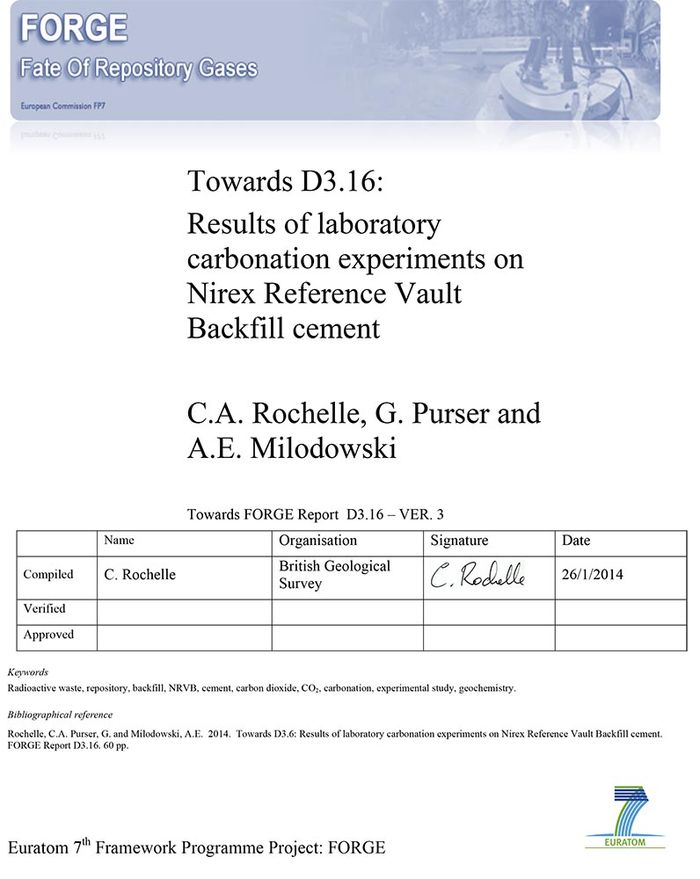OR/14/048 Fate of repository gases (FORGE)
| Rochelle, C A, Purser, G, and Milodowski, A E. 2014. Results of laboratory carbonation experiments on NRVB cement. British Geological Survey Internal Report, OR/14/048. |

The multiple barrier concept is the cornerstone of all proposed schemes for underground disposal of radioactive wastes. The concept invokes a series of barriers, both engineered and natural, between the waste and the surface. Achieving this concept is the primary objective of all disposal programmes, from site appraisal and characterisation to repository design and construction. However, the performance of the repository as a whole (waste, buffer, engineering disturbed zone, host rock), and in particular its gas transport properties, are still poorly understood. Issues still to be adequately examined that relate to understanding basic processes include: dilational versus visco-capillary flow mechanisms; long-term integrity of seals, in particular gas flow along contacts; role of the EDZ as a conduit for preferential flow; laboratory to field up-scaling. Understanding gas generation and migration is thus vital in the quantitative assessment of repositories and is the focus of the research in this integrated, multi-disciplinary project. The FORGE project is a pan-European project with links to international radioactive waste management organisations, regulators and academia, specifically designed to tackle the key research issues associated with the generation and movement of repository gasses. Of particular importance are the long-term performance of bentonite buffers, plastic clays, indurated mudrocks and crystalline formations. Further experimental data are required to reduce uncertainty relating to the quantitative treatment of gas in performance assessment. FORGE will address these issues through a series of laboratory and field-scale experiments, including the development of new methods for up-scaling allowing the optimisation of concepts through detailed scenario analysis. The FORGE partners are committed to training and CPD through a broad portfolio of training opportunities and initiatives which form a significant part of the project.
Further details on the FORGE project and its outcomes can be accessed at www.FORGEproject.org.
Contact details:
C A Rochelle
British Geological Survey
Kingsley Dunham Centre, Keyworth, Nottingham, NG12 5GG, UK
Tel: +44 (0)115 9363259
Fax +44 (0)115 9363200
email: caro@bgs.ac.uk
web address: www.bgs.ac.uk